Enhancing Data-Driven Decision-Making in EA Water Resources Management
The Laser Pulse East Africa Project on Water Security (LPEAWS) aims to provide water information, data access, decision support, and training to improve water resources (quantity, quality) management and, ultimately, water security in East Africa. This project focuses on the three East African countries—Kenya, Tanzania, and Uganda; water resources challenges are similar among the three countries even though localized climates may differ substantially. Research and translation work is focused on three key watersheds, Sasumua River Watershed (Kenya), Simiyu River Watershed (Tanzania), and Murchison Bay Watershed (Uganda), as study areas. These watersheds represent a variety of: landscapes from mountainous to coastal; and, threats to water security including urbanization, climate change, and land degradation.
Led by Margaret Gitau of Purdue University, the project is a collaborative effort involving partners in both research (Subira Munishi, University of Dar es Salaam, Tanzania; Nicholas Kiggundu, Makerere University, Uganda; Daniel Moriasi, USDA-ARS) and research translation (Bancy Mati, Resource Plan, Kenya; Victor Kongo, Global Water Partnership Tanzania; James Kisekka, Aidenvironment, Uganda). This May, the project team held a very successful meeting of water resources stakeholders in the three countries.
The meeting attracted 72 stakeholders comprising water resources managers, NGO personnel, private industry, policy makers, and academics in the water area. Participants comprised 32% female, 68% male, with an impressive 45% representation from young adults (early career professionals and students) which largely exceeded the project team’s target of 25%. The meeting started with presentations including: an overview of LPEAWS (Dr. Margaret Gitau, Purdue University); context on the management of East African water resources (Prof. Bancy Mati, JKUAT/Resource Plan); the current status of water data collection including experiences, challenges, and lessons learnt (Mr. John Gathagu, The Nature Conservancy); data and policy including use of data to inform policy and policy impacts on data availability (Dr. Benon Zaake and Mr. Tom Kanyike, Uganda Ministry of Water and Environment); and, value addition of stakeholder engagement in monitoring water resources at basin, country and regional levels (Dr. Charles Sokile, Oxford Policy Management). Participants were highly engaged providing valuable insights and suggestions on topics including: data quality; data use for water resources decision making; policy and data; and, water quality status in the basins. The presentation slides can be viewed here.
For more information, please contact Margaret Gitau (mgitau@purdue.edu).

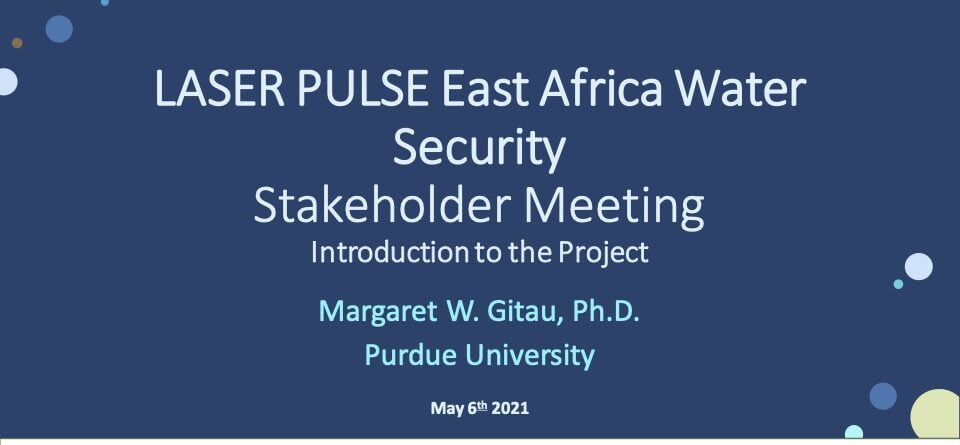
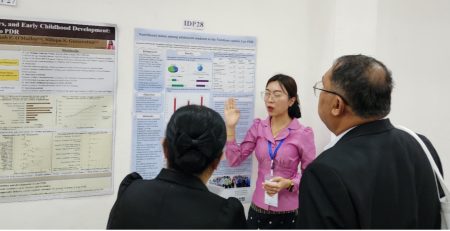
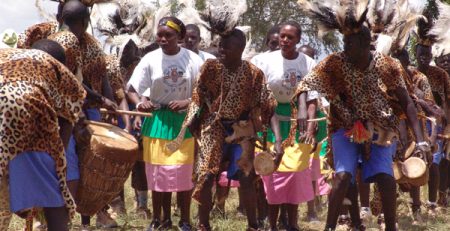

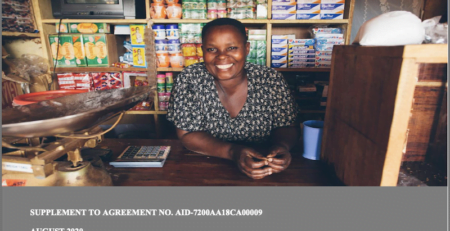
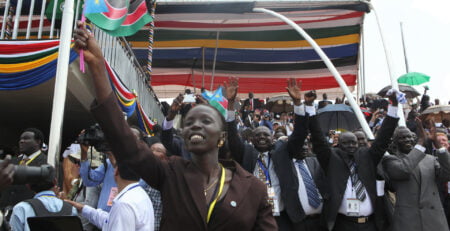

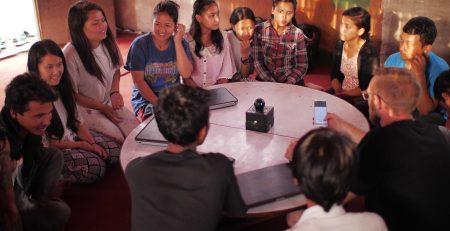
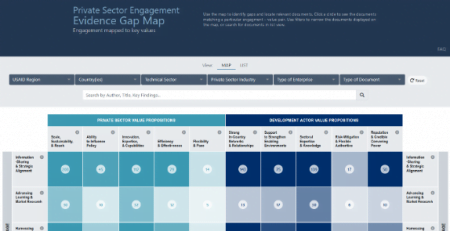

Leave a Reply
You must be logged in to post a comment.